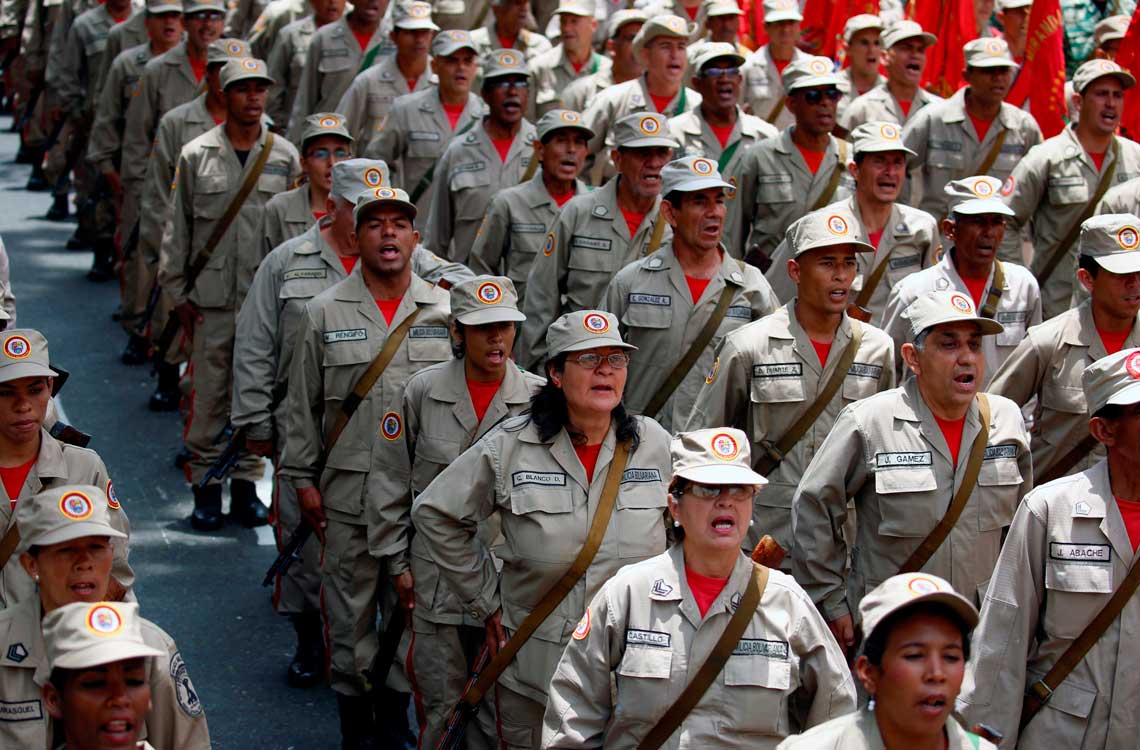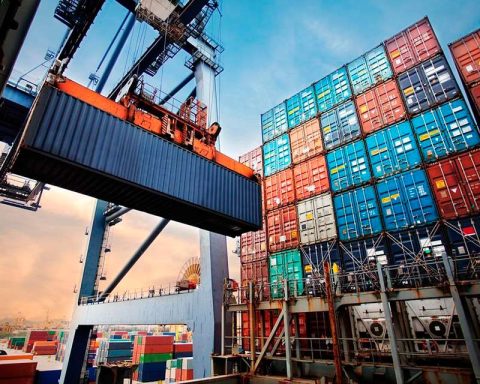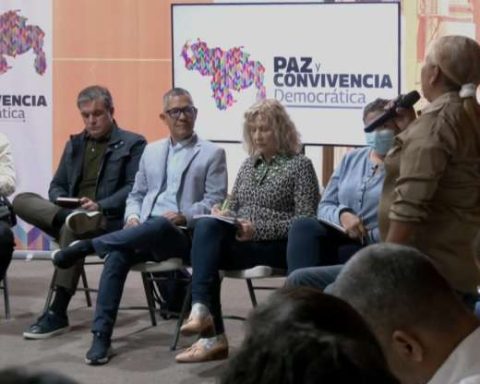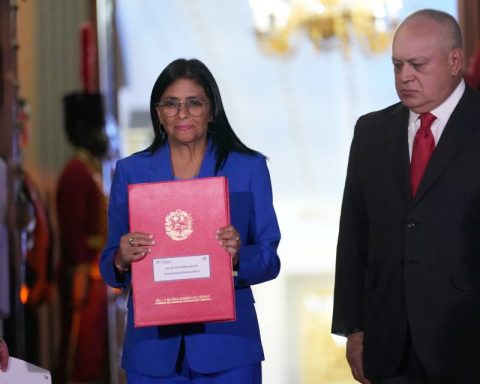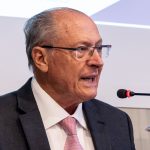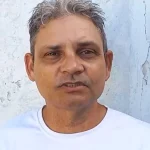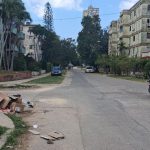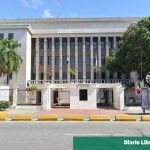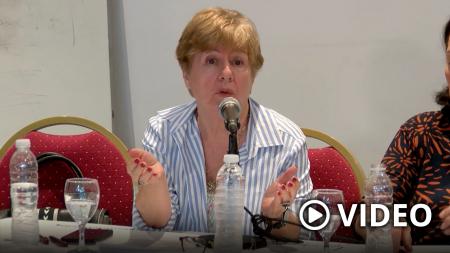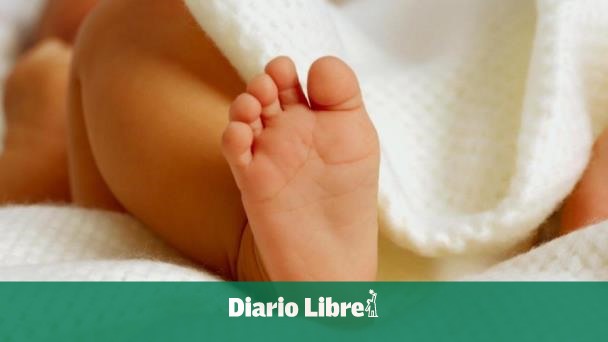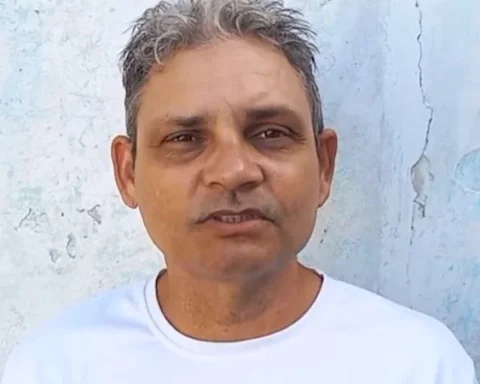The Defense Minister and Vice President of the Sovereignty, Security and Peace Sector, G/J, Vladimir Padrino López, recalled how Commander Hugo Chávez, in February 1999; Upon being sworn in as president, he presented the concept of unity between the people and their military that would shape the success of the Bolivarian Revolution through the Civic-Military Union.
During his speech at the international meeting of the Forum “Validity of the Bolivarian Thought of Commander Chávez in the 21st Century”, which is taking place in the country to commemorate the 10th anniversary of the death of the Leader of the Bolivarian Revolution, Padrino reflected on the legacy of socialist leader for Venezuela, Latin America and the rest of the emerging world.
“Commander Chávez said that it was not enough to see the sociopolitical classes or segments, each one there by their side… it was the first time that a head of state, president of the Republic called for union far beyond the political parties, far beyond the Catholic Church… of everything; the peasantry, the workers, the military,” said the military chief.
The general highlighted the leadership of President Nicolás Maduro to be able to “reap the harvest of what Chávez sowed in those years and has allowed us to polish, amalgamate and shape it perfectly,” he said.
Chávez’s initiative for the Venezuelan military
Padrino reflected that Chávez, “as a soldier, persuaded the military about the role of a commander” who loved all his commanders and instilled in the Venezuelan military the idea of the Civic-Military Unit on which the country is based today. to face the attacks of the criminal blockade imposed on the nation to subdue the will of the people.
He stressed that Chávez’s first line for the triumph of the Bolivarian Revolution in favor of the people “was to strengthen the military apparatus itself, but the second line was to convene the Civic-Military Union and the third, to add all the people to the task of defense” of the country.
He said that the resistance of the last 10 years of blockade and attack on the country that the Government of President Maduro has faced, as well as the battle waged by Commander Chávez in an unconventional and multiform war, is thanks to the Civic-Military Union undertaken and consolidated by Chávez.
people’s battalions
He recalled the head of Defense when Commander Chávez indicated that he would create “health and agricultural battalions, to open war operations against malnutrition, misery and the demoralization of the people.”
Then he referred to the creation of the Bolivarian Militia as part of the call of Commander Chávez for the defense of the homeland that is supported by the concept of protecting Venezuela, “the same as Ezequiel Zamora, the same as Simón Bolívar, and Hugo Chávez stood up and he called for a reorganization, a complete re-foundation of the military institution” that was possible only with his leadership that revolutionized the military institution behind closed doors while opening those doors to the people.
“A virtuous mass that saw things in a holistic national way was added and created… that was a victory that Commander Chávez scored and look at how we have resisted these last 10 years,” Padrino said.
“Today the military consider ourselves, as Hugo Chávez said, a man of the people in uniform, because we are not mercenaries,” he said, noting that one of the most notorious pressures of that Civic-Military Union has been the creation of the Bolivarian Militia (MB) that I see it as a hinge between the active armed forces and the people”, said the minister.
He highlighted the success of this component of the FANB and how the people join the MB, not only for functions “of a social, political and community order, but also a militiaman and a militiawoman of any age who wants to put on a uniform” has a weapon, a mission and a site to defend the country.
Chavez’s harvest
The Vice President of Sovereignty recalled how on February 27, 1989, the people took to the streets alone to confront the tyranny and the military repressed them, but that shortly after Commander Chávez would vindicate the armed forces, leading a rebellion inspired by the courage of the town, which would later rescue him in 2002 when he was briefly overthrown.
Padrino reflected that between 1989 and 2002, the relationship between the Venezuelan people and their armed forces went from being one of confrontation and repression to one of union and loyalty. He explained how the military was used by politicians to massacre thousands of people in 1989, but in 1992 the military rebelled against those politicians and in 2002, when the coup d’etat against Chávez, the people spontaneously marched to demand that the uniformed men rescue Chávez and join them in restoring democracy.
“This is the harvest of what Commander Chávez had insinuated on the national stage… We saw an enraged people pouring out at the doors of the barracks, demanding the presence of the legitimate president and making a conspiratorial alliance, let’s call it that way, with the military in the barracks; It was an inflamed town and some patriotic soldiers… there the feat began to be seen,” Padrino said.
He recalled that after the 2002 coup Chávez invited the Armed Forces to outline a comprehensive military strategy since there had been an alignment of the military to US doctrines for decades, and it was Chávez who managed to put an end to this submission to imperialism and create union with the people.
Loyalty and example to the world
Padrino highlighted the loyalty that the Bolivarian National Armed Forces (FANB) continues to show to his people, which was born after the re-foundation of the republic led by Chávez himself, and assured that this force is an example for the region of the transformation that is possible when the The people and the military are the same political and social entity.
“The military of Latin America and the Caribbean must see each other; I humbly say it, they must see themselves in the mirror of the phenomenon and the nature of the transformation that took place in one of the most conservative institutions; like the Armed Forces,” said Padrino.
He stressed “how this experiment, this revolution and these contributions by Commander Hugo Chávez have allowed us to resist, maintain territorial integrity, defend sovereignty and protect the people.”
“People and Armed Forces united is the secret to victory,” he said to end his speech at the Forum
